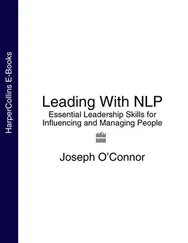John Gray - Children Are from Heaven - Positive Parenting Skills for Raising Cooperative, Confident, and Compassionate Children
Здесь есть возможность читать онлайн «John Gray - Children Are from Heaven - Positive Parenting Skills for Raising Cooperative, Confident, and Compassionate Children» весь текст электронной книги совершенно бесплатно (целиком полную версию без сокращений). В некоторых случаях можно слушать аудио, скачать через торрент в формате fb2 и присутствует краткое содержание. Год выпуска: 1999, ISBN: 1999, Издательство: HarperCollins e-books, Жанр: psy_childs, sci_pedagogy, Психология, на английском языке. Описание произведения, (предисловие) а так же отзывы посетителей доступны на портале библиотеки ЛибКат.
- Название:Children Are from Heaven: Positive Parenting Skills for Raising Cooperative, Confident, and Compassionate Children
- Автор:
- Издательство:HarperCollins e-books
- Жанр:
- Год:1999
- ISBN:978-0-06-133886-1
- Рейтинг книги:4 / 5. Голосов: 1
-
Избранное:Добавить в избранное
- Отзывы:
-
Ваша оценка:
- 80
- 1
- 2
- 3
- 4
- 5
Children Are from Heaven: Positive Parenting Skills for Raising Cooperative, Confident, and Compassionate Children: краткое содержание, описание и аннотация
Предлагаем к чтению аннотацию, описание, краткое содержание или предисловие (зависит от того, что написал сам автор книги «Children Are from Heaven: Positive Parenting Skills for Raising Cooperative, Confident, and Compassionate Children»). Если вы не нашли необходимую информацию о книге — напишите в комментариях, мы постараемся отыскать её.
Children Are from Heaven: Positive Parenting Skills for Raising Cooperative, Confident, and Compassionate Children — читать онлайн бесплатно полную книгу (весь текст) целиком
Ниже представлен текст книги, разбитый по страницам. Система сохранения места последней прочитанной страницы, позволяет с удобством читать онлайн бесплатно книгу «Children Are from Heaven: Positive Parenting Skills for Raising Cooperative, Confident, and Compassionate Children», без необходимости каждый раз заново искать на чём Вы остановились. Поставьте закладку, и сможете в любой момент перейти на страницу, на которой закончили чтение.
Интервал:
Закладка:
When children are unruly, they don’t
need threats of punishment; they just need
to reconnect.
The permission to say no and want more creates strong negative emotions when more is not achieved. The expression of these strong emotions not only gives children the opportunity to learn how to manage negative emotions, but also increases children’s ability to look within or feel. By making it okay to express negative emotions, a feeling awareness is generated that is necessary to connect child to parent.
Feeling awareness helps children identify their inner needs. With greater feeling, children are more aware of the need for their parents’ love and guidance. Automatically, their willingness to cooperate and learn from their parents is activated. Rather than being shamed or punished, these children automatically self-correct with the benefit of their parents’ innate consciousness of what is right or wrong, good or bad, smart or stupid. Although children don’t directly know what their parents know, they are able to benefit from their knowledge and other resources to self-correct and to make needed adjustments.
Each of these five messages of freedom is counterbalanced with respect. It is okay to resist, but clearly mom and dad are in charge. The five freedoms cannot work unless parents maintain strong leadership. To give children freedom without authority is a kind of permissive abuse.
Children need their parents to be in control. Using the love-based skills of positive parenting makes this possible.
TWO PROBLEMS OF LOSING CONTROL
When children disconnect from their inner willingness to cooperate with their parents’ control, two very significant problems arise. They either act out or internalize the inner pain and turmoil of being out of their parents’ control.
Although some children will do both or alternate back and forth, generally speaking boys act out and girls internalize.
To the extent that children don’t get the support they need through parental control, they will continue to display some of the symptoms of being out of control.
Generally speaking, boys act out and girls
internalize their inner pain and turmoil.
Boys particularly become unruly and resistant to authority and misbehave. Without the support of family and parents, they become overly dependent on peers for leadership. One bad apple can ruin the whole barrel: A good kid is easily influenced by others who are not so good. When preteens and teens are disconnected from their parents, they are at greater risk of being “ruined” by peers who are even more out of control.
When out of parental control, boys tend to lose their ability to maintain their focus. They become hyperactive, which leads to increasing individual or gang-related aggression, violence, substance abuse, nonrelational sex, meanness, and cruelty. As parental control weakens, grades go down and school and family-related activities diminish. Cut off from parental control, boys are unable to develop their true potential.
As parental control weakens, grades
go down and school and family-related
activities diminish.
Though girls may experience some of these same problems, they tend to internalize the inevitable confusion and pain of being cut off from parental support. Girls particularly lose their confidence and their self-esteem drops. Instead of looking to their parents for support, some turn to boys and inappropriately use their sexuality as a way to get attention and feel special.
While boys become hyperactive and unable to focus or discipline themselves, girls tend to focus too much on their inadequacies and shortcomings. This leads to negative self-talk, over-gossiping, weight issues, petty meanness to other girls, poor self-image, teen pregnancies, suicidal tendencies, involvement in abusive relationships, drug addiction, and depression. Disconnected from the support they need from parents, girls are unable to develop their true potential.
THE NINE-YEAR STAGES OF MATURITY
Children need to move through three nine-year stages of maturity to become healthy and successful adults. For the first nine years, children develop best through growing in trust while being completely dependent. In the second nine years (ages nine to eighteen) preteens and teens develop by learning to trust themselves and by becoming increasingly independent. In the third stage of maturing (ages eighteen to twenty-seven), the young adult develops by becoming autonomous.
During the first stage, parents’ challenge is to be completely responsible for the child. In the second stage, the parents’ challenge is to maintain a sense of control, but to give a preteen and teen increasing freedom and independence. The process of letting go of control is gradual. Children cannot learn to trust themselves unless we give them the opportunity to be more responsible. Preteens and teens need increasing freedom to develop a healthy sense of responsibility. Just as in the earlier stage, parents should not expect perfection; children make mistakes at all ages.
Preteens and teens need increasing freedom
to develop a sense of responsibility.
In the third stage (ages eighteen to twenty-seven) parents need to back off and let go of being responsible for their children. Parents still hold the important role of being supportive in any way they can. This support is primarily determined by what the child requests and believes she needs and not what the parent thinks the child needs. For example, it is fine to give advice, lodging, or money if she is wanting or asking for it.
A loving parent needs to stop worrying about their adult child and instead admire his efforts to succeed. To worry about an adult just gives the message that you believe something is wrong with him or you don’t trust him. Well-meaning parents wanting to make up for their past mistakes make matters worse by offering unsolicited help after a child is eighteen.
THE DEVELOPMENT OF RESPONSIBILITY
During the first stage, children are completely dependent on the support of parents for direction. Without complete parental control, they are forced to grow up too quickly and miss certain aspects of development. Learning to trust and depend on others is the basis of gradually being able to trust ourselves.
You could never learn to walk a tightrope if you had to practice high in the air without a safety net. In the beginning, you learn to walk close to the ground. Then you raise the rope, but have a safety net below. Without the security of knowing you can fall, it is impossible to learn a new skill.
Knowing that you can depend on others and you deserve their support is a strong foundation for eventually developing independence and autonomy.
In the first stage, unless parents give clear messages that they are in control, children automatically assume too much responsibility. Children do not have the brain development to reason or look at issues from another’s point of view.
When they are loved, they assume it is because they are lovable. They assume responsibility. They believe they make others love them. When children are unloved, they assume they are unlovable and that they make others not love them.
Children assume responsibility for whatever
occurs to them or around them.
Children are egocentric. The world revolves around them. When good things happen, they assume they make good things happen. When bad things happen, they assume they are responsible for those things as well. Unable to reason or look at issues from another point of view, they mistakenly assume too much responsibility.
For example, when a parent is in a bad mood, a child cannot comprehend that other things may be responsible for that parent’s bad mood. The child immediately assumes that he or she is responsible. This tendency to assume too much responsibility can be corrected if the parent takes responsibility for his bad mood.
Читать дальшеИнтервал:
Закладка:
Похожие книги на «Children Are from Heaven: Positive Parenting Skills for Raising Cooperative, Confident, and Compassionate Children»
Представляем Вашему вниманию похожие книги на «Children Are from Heaven: Positive Parenting Skills for Raising Cooperative, Confident, and Compassionate Children» списком для выбора. Мы отобрали схожую по названию и смыслу литературу в надежде предоставить читателям больше вариантов отыскать новые, интересные, ещё непрочитанные произведения.
Обсуждение, отзывы о книге «Children Are from Heaven: Positive Parenting Skills for Raising Cooperative, Confident, and Compassionate Children» и просто собственные мнения читателей. Оставьте ваши комментарии, напишите, что Вы думаете о произведении, его смысле или главных героях. Укажите что конкретно понравилось, а что нет, и почему Вы так считаете.












